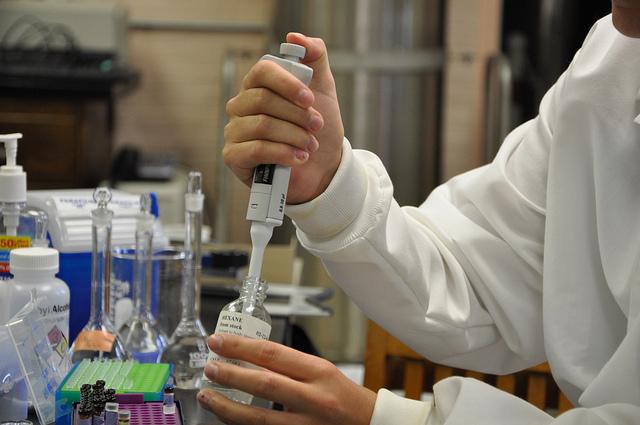University of Wisconsin biomedical engineering professor David Beebe is working to bring a new type of tuberculosis test to places in Africa that experience high rates of the disease.
Traditional methods of tuberculosis testing require a sputum sample. Sputum is a mucus which is created in the lungs which can be tested for germs using a sputum culture. Patients must sometimes cough up sputum to provide the sample, according to WebMD.
The new tuberculosis test would use urine to test for the disease instead. The new test would also be cheaper and faster than traditional tuberculosis tests and would work similarly to an at-home pregnancy test, Beebe said.
Beebe said an important aspect of the test is the fact patients would receive their results sooner than they would with older methods.
“It takes at least a few hours, and sometimes several weeks, to get an answer to the test,” Beebe said. “By that time usually the patient has progressed to the obvious point where they have TB or they don’t.”
New research at UW indicates more ways to understand diseases in nervous system
A shorter waiting time for the results of the test will mean fewer cases of the disease as patients will seek treatment sooner.
Beebe said the sooner patients are aware of and treat their tuberculosis, the fewer people they will infect.
“You’d like to catch them early because even before they’re showing symptoms they could be infecting others,” Beebe said. “So if you catch it early and get them on treatment you can greatly reduce the spread of the disease.”
But the faster and cheaper aspects of the early tuberculosis detection test cannot come at the cost of accuracy.
UW pathobiological sciences professor Adel Talaat said new technology allows faster, cheaper and accurate testing to be possible.
“Early detection of the disease is really an important thing and I think this technology can help do that,” Talaat said.
This technology detects the proteins of tuberculosis in urine instead of requiring a sputum sample and is beneficial as urine is more easily accessible, Beebe said.
Beebe said advances in technology will change the way testing is administered everywhere — in both developed and developing countries.
UW researchers move closer to cure for fatal disease in recent breakthrough
Moving testing out of clinics could help to solve health care issues in the U.S. by decreasing costs and simplifying the testing process for patients, Beebe said.
Also, the technology developed by Beebe has the potential to help diagnose diseases other than tuberculosis, he said.
“There is no question that as technology improves, tests will continue to move out of the clinics and into home use or testing at Walgreens,” Beebe said. “All of that will help contribute to reducing cost and improving patient outcomes.”
This test would also help act as a screening method for people who believe they have a symptom of tuberculosis but have no other way of diagnosing themselves.
Talaat said different regions of Africa experience different occurrence rates of the disease and this test would change life in those communities.
“In some places in Africa there is a high prevalence of tuberculosis,” Talaat said. “This would definitely be very good news to people.”
Disease of unknown source reaches outbreak levels with 44 cases in Wisconsin
The test will need to be approved before being brought to Africa. Beebe plans on bringing the test to Africa for the first experiments this spring. He hopes to eventually manufacture the test directly in Africa and said development has started for a manufacturing device.
Talaat said after it is approved, the device will be beneficial to communities in Africa.
“This will have a positive effect once approved and commercialized,” Talaat said.





















